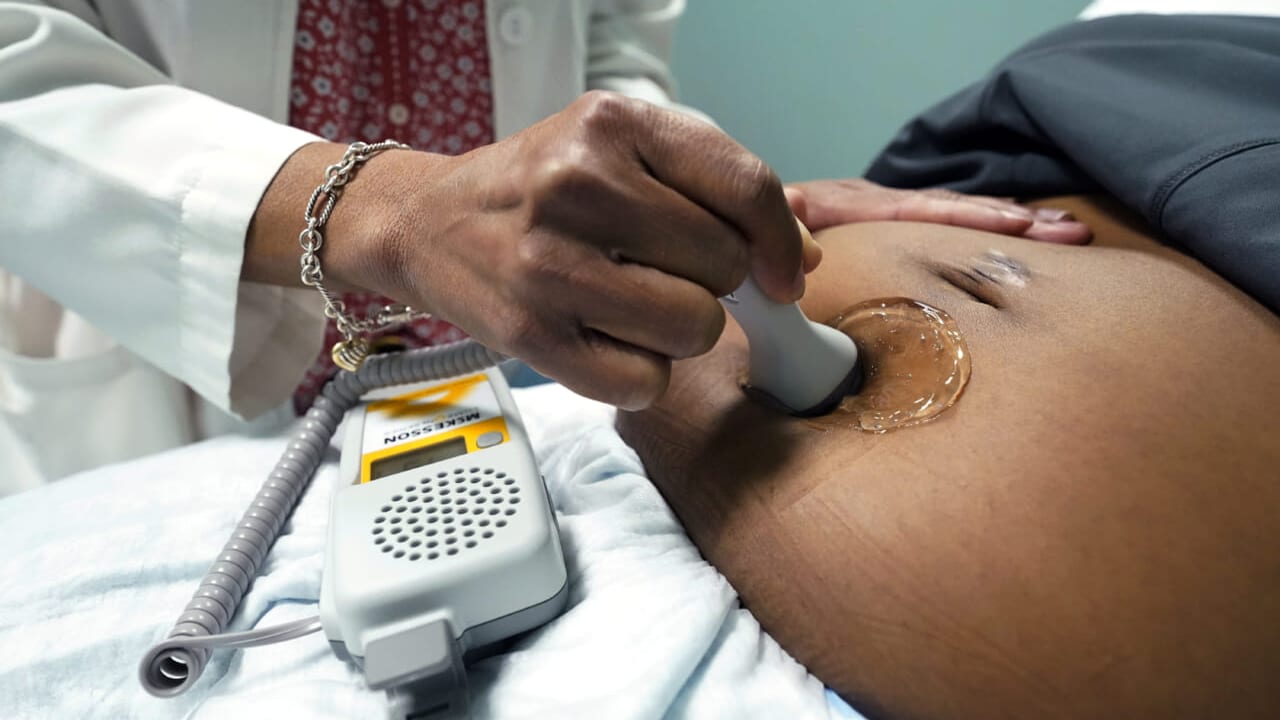We bring news that matters to your inbox, to help you stay informed and entertained.
Terms of Use and Privacy Policy Agreement
WELCOME TO THE FAMILY! Please check your email for confirmation from us.
“Healthy Moms, Healthy Babies” intends to tackle the alarmingly high mortality rates among Black mothers-to-be during childbirth in Michigan — and across the country.
Black American mothers are three times more likely than their white counterparts to die during childbirth, and the state of Michigan wants to do something about it — and the racial inequities that are an underlying factor.
According to MLive, “Healthy Moms, Healthy Babies,” an initiative from Michigan Gov. Gretchen Whitmer’s administration, intends to tackle the issue by addressing racial disparities contributing to the alarmingly high maternal mortality rates among Black women and infants in that state and across the nation.
Lt. Gov. Garlin Gilchrist said that the issue is a high priority for the Black women of Michigan and that the initiative is the state’s response to residents’ pressing needs.
“If we are a state where Black women are healthy and safe and able to be their best in,” Gilchrist told MLive, “that makes us more of a state where every woman is safe and healthy and able to thrive.”
The lieutenant governor contended that the latter cannot exist without the former, so he believes it’s his opportunity and responsibility “to do everything I can for us to make progress in this area.”
Whitmer initially introduced “Healthy Moms, Healthy Babies” in her 2020 State of the State address. Since then, Michigan has increased Medicaid coverage from 60 days postpartum to a year, offered doula services to Medicaid beneficiaries and allocated money for doula training to guarantee care is available across the state.
Gilchrist said there were disagreements with the Republican majority in the legislature over what he saw as their lack of commitment to addressing Black maternal health issues. Still, he, Whitmer and the current Democratic-led legislature “remain steadfast” in their resolve to do so.
The maternal mortality rate for Black women was 69.9 deaths per 100,000 live births in 2021, 2.6 times higher than the 26.6 rate for white women. Among the factors contributing to the inequities, are a lack of access to high-quality healthcare, underlying medical problems, institutional racism and bias.
The governor’s administration made suggestions for 2024 that expand upon the earlier investments, including removing a five-year waiting time for legal immigrant families to get Medicaid. Also among them are grants to Michigan’s Perinatal Quality Collaborative, which is made up of stakeholders such as hospitals and local health departments; group prenatal classes to prevent women from feeling alone during pregnancy; and a reinstated plan to give people who are up to 195 percent of the federal poverty line free access to family planning services. For a single person, this would equate to a yearly salary of roughly $28,000, and for a family of four, it would amount to around $59,000.
Although the state legislature is just beginning to execute some of these suggestions, Gilchrest said, according to MLive, he anticipates they will finish by the start of the summer break in June. While the proposal does not currently address all of the issues contributing to expectant Black mothers’ deaths, he noted that there’s more to come.
Gilchrist stated that as a Black man with a Black wife and three Black children, he wants his “full self” present when he participates in matters important to his community. He served as chair of Michigan’s task force that addressed racial disparities in COVID-19 diagnoses in the state, the first of its kind.
“When we saw that Black folks are dying at a rate way higher than everybody else, we decided that we were not going to let that stand,” said Gilchrist, MLive reported. “Because Michigan paid attention and actually attempted to solve that problem and eradicate that disparity, we’re the only state in the country that was able to do so.”
TheGrio is FREE on your TV via Apple TV, Amazon Fire, Roku and Android TV. Also, please download theGrio mobile apps today!

